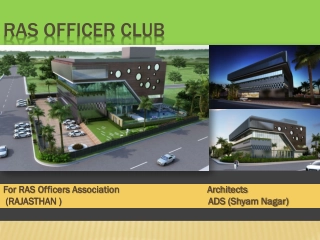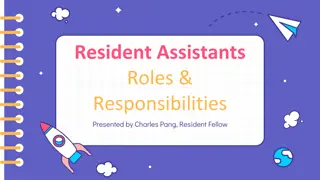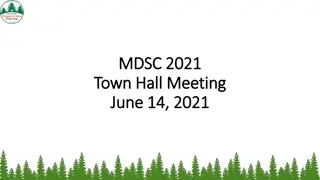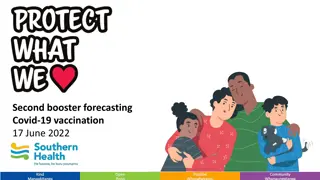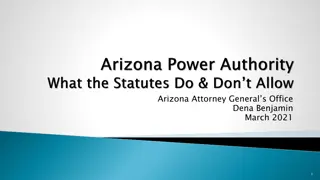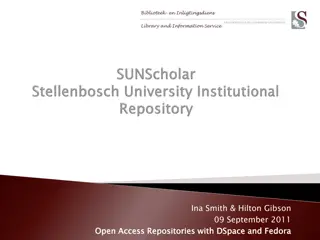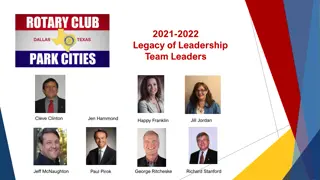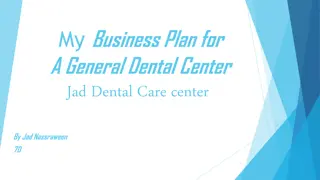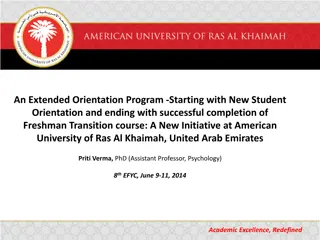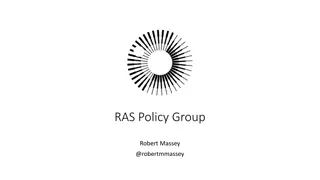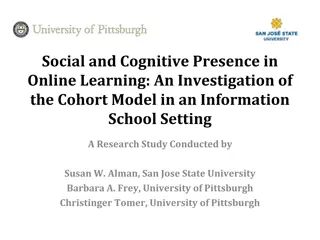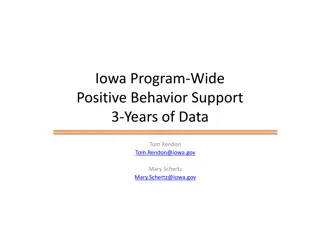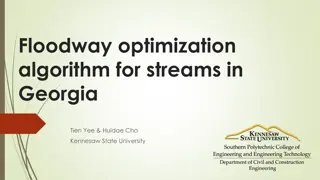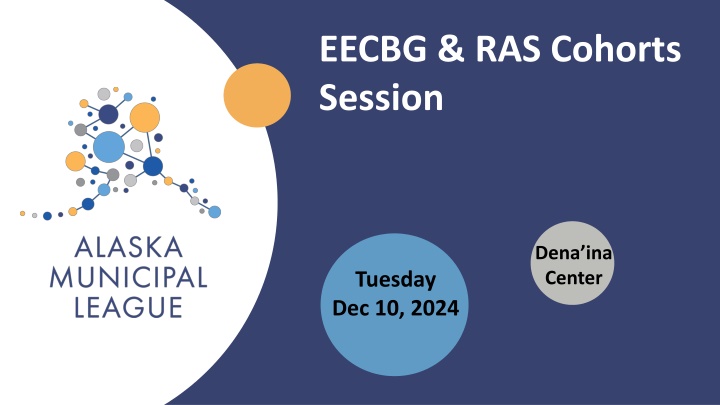
EECBG & RAS Cohorts Session at Dena'ina Center
The EECBG & RAS Cohorts Session held at the Dena'ina Center on December 10, 2024, included discussions on energy audits, state and community energy programs, and a project focusing on energy assessments of public buildings in Alaskan communities. The session outlined a general timeline for the two-year project, emphasizing community engagement, technical assistance, and strategies for energy efficiency and conservation.
Download Presentation

Please find below an Image/Link to download the presentation.
The content on the website is provided AS IS for your information and personal use only. It may not be sold, licensed, or shared on other websites without obtaining consent from the author. If you encounter any issues during the download, it is possible that the publisher has removed the file from their server.
You are allowed to download the files provided on this website for personal or commercial use, subject to the condition that they are used lawfully. All files are the property of their respective owners.
The content on the website is provided AS IS for your information and personal use only. It may not be sold, licensed, or shared on other websites without obtaining consent from the author.
E N D
Presentation Transcript
EECBG & RAS Cohorts Session Dena ina Center Tuesday Dec 10, 2024
AGENDA Welcome & Intros (Erin Reinders, AML) 5min Brief of EECBG (Trisha Sims, AML) - 10 min Brief of RAS (Ren Scott, AML) -10 min Energy Audits 101 (Jim Fowler) 20min Discussion and Planning (Group) 10min 2:1 Wrap Up & Thank you 5min
Welcome and Introductions Presented by Erin Reinders, AML
State and Community Energy Programs (SCEP) Energy Efficiency and Community Block Grant (EECBG) Presented by Trisha Sims, AML
Project Purpose Adak Dillingham Hooper Bay Kotzebue Nenana Toksook Bay Unalakleet Utqiagvik As Alaskans, we are aware that our climate presents unique challenges for building energy efficiency Many buildings in our smaller communities have not had energy audits or recent commissioning so the systems may not be functioning as intended For those that have had audits, the most recent results are roughly a decade old and would need to be updated to provide meaningful information Conducting audits on public buildings provides the local governments with the most cost-effective retrofit measures to pursue 2:1 This project will conduct energy assessments of public buildings in a cohort of eight communities. The rural local governments include the cities of:
General Timeline The two-year project timeline anticipates early community engagement with opportunities for community review and feedback at semi-regular intervals. Each community will conduct their energy assessment, with the support of partnering organizations, within the first year. Participating communities will be invited to meet bi-monthly as part of a cohort that will review best practices, asset management, energy efficiency, conservation measures, and opportunities for carbon reduction. These sessions will be an opportunity to provide technical assistance, build competency in these areas, and address project implementation challenges. Community officials will work individually and together to develop strategies for addressing energy efficiency and conservation in their facilities, working with technical experts to identify solutions that are community-specific but proven to be effective. Strategies will be shared within the cohort for cross-learning and ideation, as well as creative problem-solving. 2:1
Anticipated Months from Start of Project Milestone Description Milestone verificaction (What, how, who, where) Anticipated Date Community Cohorts Established Eight community agreements signed and documented. Sept 2024-October 2024 Months 1-2 Community Needs Survey Survey instrument delivered to and returned from Oct 2024-Nov 2024 Months 2-3 Cohort meets every other month for technical assistance and information sharing. Community Cohort Meetings Oct 2024-Aug 2026 Months 2-24 Equity assessment conducted to determine equitable distribution of community benefits. Equity Assessment Dec 2024-Jan 2025 Months 4-5 Based on equity assessment and past studies, public facilities are prioritized for audit. Facility Prioritization Jan 2025 - Feb 2025 Months 5-6 Energy Auditor procured Conduct procurement process to select energy auditor. Oct 2024-Nov 2024 Months 2-3 Energy Audits Conducted Contractor conducts energy audits in cooperation with municipal official March 2025 - July 2025 Months 7-12 Completed audits delivered to project administrator and community. Energy Audits Completed March 2025 - July 2025 Months 7-12 Cohort of communities receive technical assistance in bi-monthly meetings, focused on implementing audit recommendations. Cohort Technical Assistance Aug 2025- Aug 2026 Months 12-24 Strategy Development Cohort develops implementation strategies for each community. August 2025 - Oct 2025 Months 12-14 Implement Audit Recommendations Evaluation Each community receives funds for implementing reasonable level of audit recommendations. Nov 2025 - April 2026 Months 15-20 2:1 Identify Additional Funding Opportunities Communities identify additional funding to implement recommendations. Nov 2025 - April 2026 Months 15-20 Community Benefits Evaluation Communities and administrator evaluate equitable distribution of benefits. May 2026- Aug 2026 Months 21-24 Project Evaluation Administrator evaluates project impact. May 2026- Aug 2026 Months 21-24
Deliverables This project will result in an energy assessment of and efficiency and conservation plan for public facilities in eight rural, disadvantaged communities in Alaska. The project will increase energy efficiency, reduce diesel fuel consumption, and lead to more economically delivered power to community facilities. Energy audits will allow communities to understand the overall energy use in their public facilities and plan for clean energy deployment based on the needs identified in the audits. Efficiency upgrades are the first step to managing a community s energy landscape because reducing the baseload and peak demands from buildings reduces the amount of energy needed. 2:1 By reducing usage, energy systems can be sized appropriately to maximize benefit to the community.
More to Come We will be developing a calendar for 2025 project meetings, with topics Community Needs Survey Equity Assessment a plan to be developed for what this will look like and what we may need from your community We will be working up a subrecipient agreement you will each need to sign We have a Community Benefits Plan that we ll be working through 2:1
Renew Americas School (RAS) Presented by Ren Scott, AML
Project Purpose Alaska s harsh weather conditions make building and maintaining infrastructure more complicated and expensive. Many schools in AK are facing budget deficits and have been unable to meet current facility needs, let alone make improvements. Schools will see a reduction of fuel oil use, electricity, emissions, and less money spent on energy consumption. 2:1 By investing in energy-efficient technologies and practices, schools can serve as catalysts for broader sustainability initiatives.
School Locations Aleutians East School District Southeast Island School District Juneau School District Akutan School False Pass School King Cove School Sand Point School Port Alexander School Whale Pass School Glacier Valley Elementary School Harborview Elementary School Juneau Douglas High School Kax dig oowu H en Elementary School Thunder Mountain Middle School 2:1
General Timeline Project will be completed in three phases Phase I: Facilitated planning effort Phase II: Deliver energy audits in partnership with LEAs (Budget Period 1) Phase II: Deployment of improvements by LEAs (Budget Period 2) Community Benefits plan to be reviewed, updated, and progress recorded on a quarterly basis with stakeholders AML will maintain open and ongoing communication with subrecipients by hosting regular meetings to discuss project progress, challenges, and support needs. 2:1
General Timeline (Estimated) Energy audits conducted Apr 25 - Sept 26 (months 1-18) Strategic plan development: Apr 25 Mar 26 (months 1-12) Design/Build contract bidding and award: Mar 26-Jun 26 (months 12-15) Design drawing and cost estimate complete: May 26-Jul 25 (months 14-16) NEPA Requirements Submitted: Jun 2026 Sept 26 (Month 15 18) Design Drawings Bid for Final Subcontractor Pricing: Oct 26 Dec 26 (Month 19-21) Project Construction: January 2027 September 2028 (Month 22-42) Energy Analysis and Reporting / Measurement & Verification: Sept 27 Sept 28 (Month 30 42) 2:1
Deliverables AML will collaborate with the three school districts, deliver energy audits in partnership with Local Education Agency (LEA), and ensure successful deployment of project improvements. Project will result in an energy assessment of, efficiency and conservation plan for, and improvements to 11 schools in 7 rural, disadvantaged communities in AK. This project can lead to increased awareness and adoption of energy- saving behaviors within and beyond the school environment, resulting in further emissions reductions. Investment in modern, efficient building systems and technologies can ensure long-term sustainability and resilience. 2:1
Energy Audits 101 Presented by Jim Fowler
Discussion and Planning Group Involvement
Topics to Discuss or Other Questions? Do you have these items available? 3 years of electricity use data and heating fuel delivery data Drawings for building (digital or paper) Points of contact Past energy audits and updates since then What is the status of buildings in your community? How many municipal buildings? Concerns for each? Location? Who uses the buildings? 2:1
THANK YOU Strengthening Local Governments

